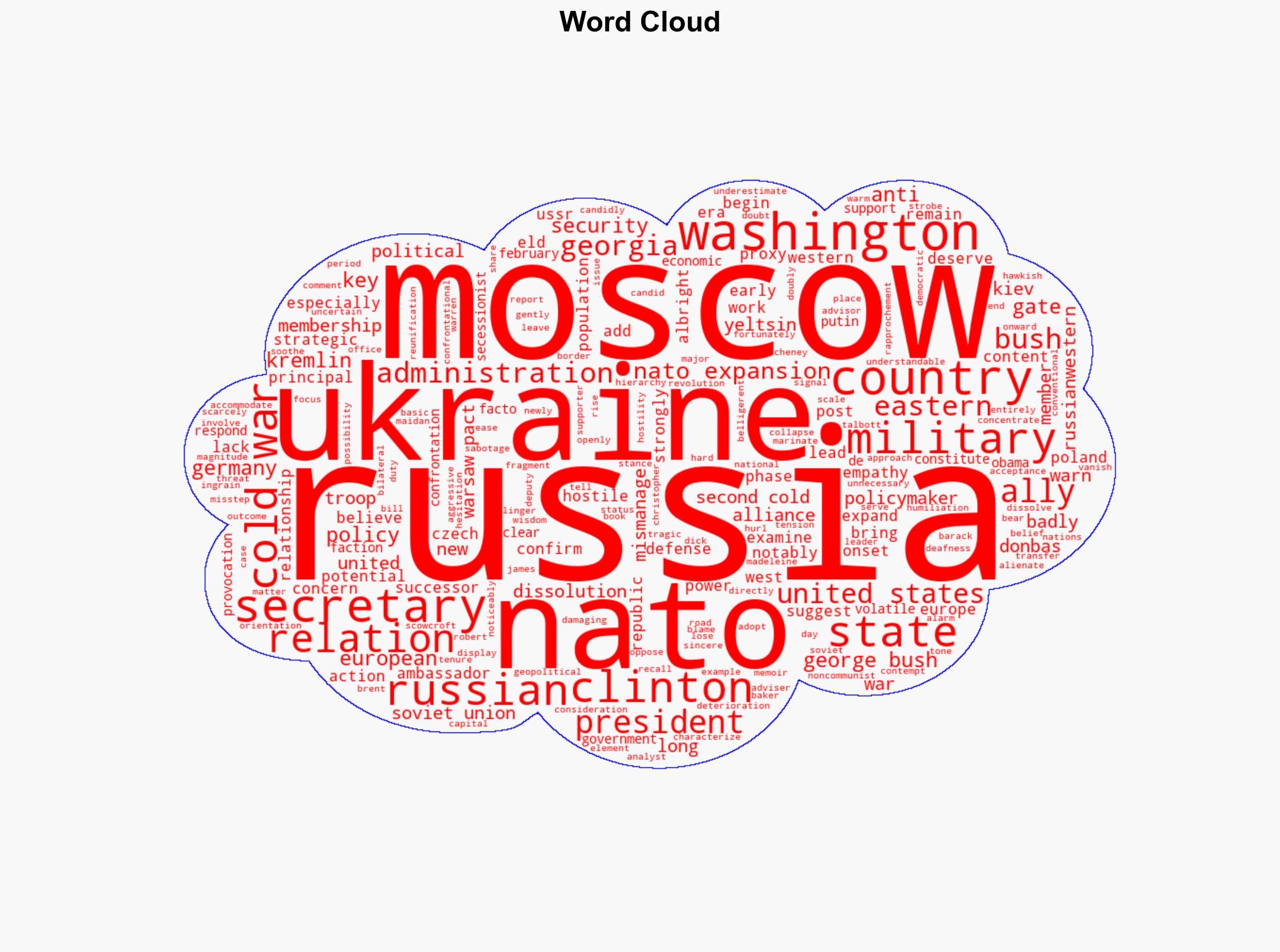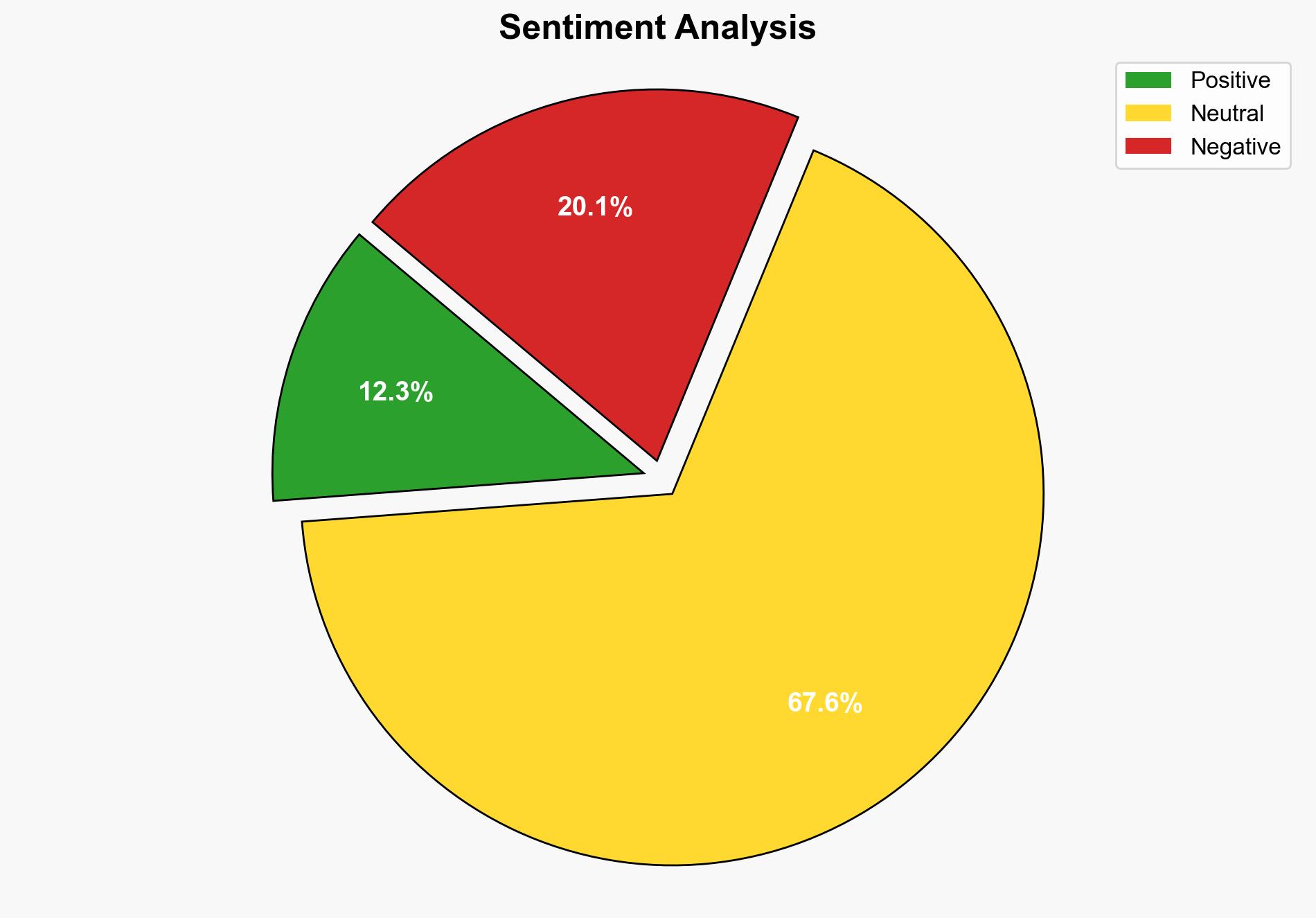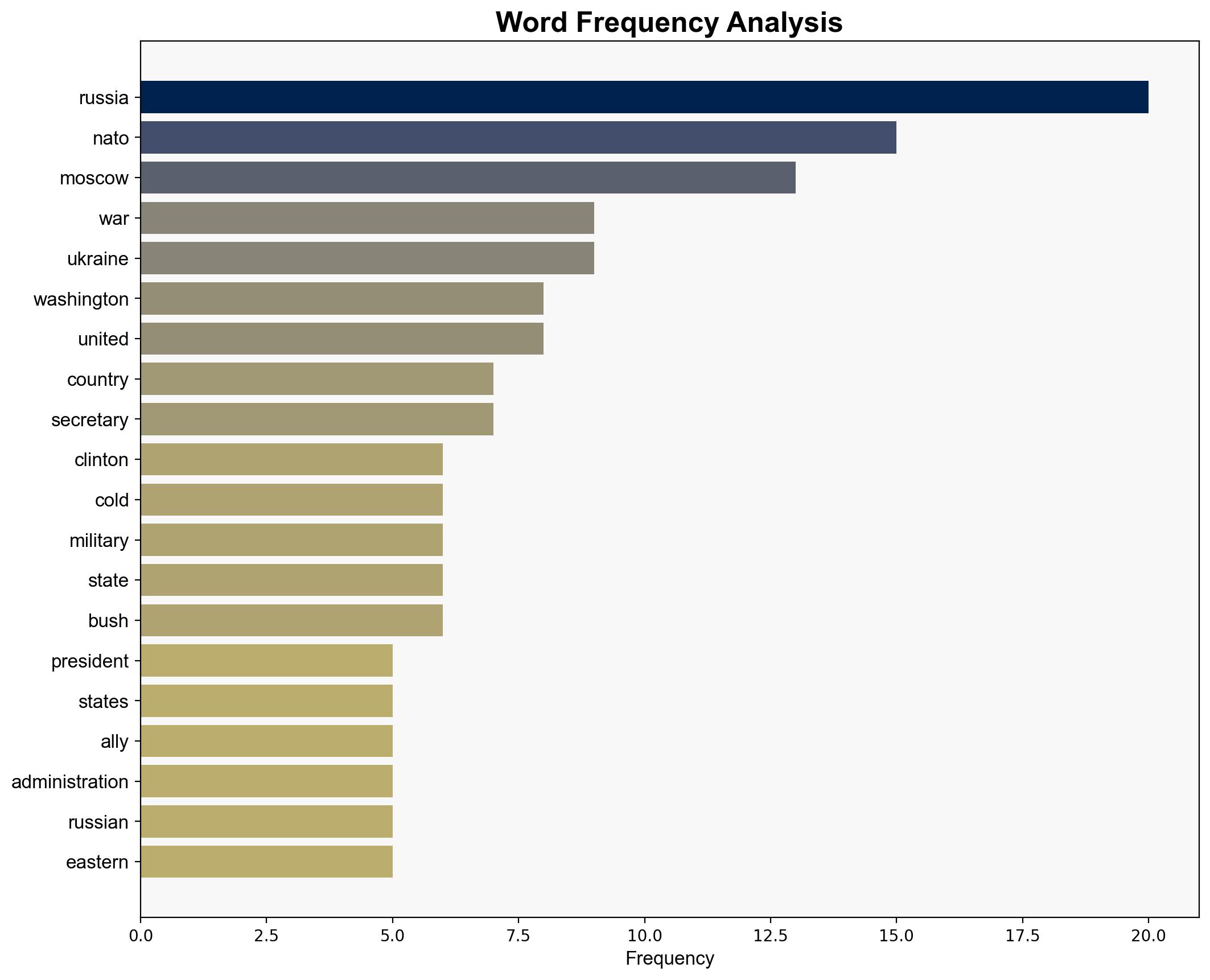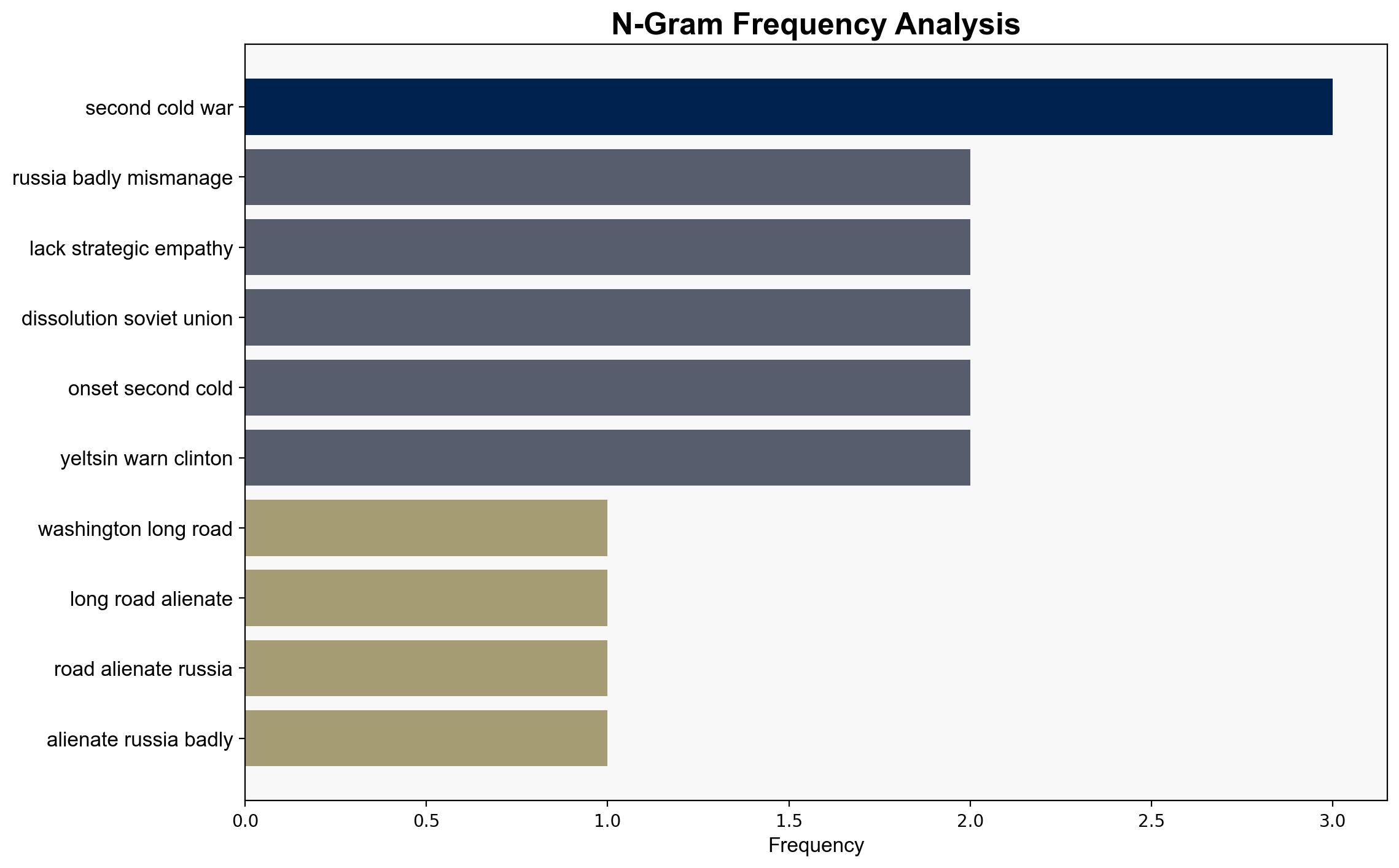Washingtons Long Road to Alienating Russia – The American Conservative
Published on: 2025-10-21
Intelligence Report: Washington’s Long Road to Alienating Russia – The American Conservative
1. BLUF (Bottom Line Up Front)
The analysis suggests that the most supported hypothesis is that Washington’s strategic missteps and lack of empathy in handling post-Soviet Russia have contributed significantly to the deterioration of relations, leading to the current geopolitical tensions. Confidence in this hypothesis is moderate, given the complexity of international relations and the influence of multiple actors. Recommended action includes reassessing historical policy decisions and engaging in diplomatic efforts to rebuild trust with Russia.
2. Competing Hypotheses
1. **Hypothesis A**: The deterioration of US-Russia relations is primarily due to Washington’s strategic mismanagement and lack of empathy towards Russia’s post-Soviet transition, exacerbated by NATO’s eastward expansion.
2. **Hypothesis B**: The decline in relations is driven by Russia’s aggressive geopolitical strategies and internal political dynamics, with US actions being a secondary factor.
Using ACH 2.0, Hypothesis A is better supported by the evidence of historical policy missteps, such as NATO expansion and dismissive attitudes towards Russian concerns, as highlighted in the source text. Hypothesis B lacks substantial support from the provided data, which focuses more on US actions.
3. Key Assumptions and Red Flags
– **Assumptions**: Hypothesis A assumes that US actions were the primary catalyst for deteriorating relations, while Hypothesis B assumes Russia’s internal dynamics are the main driver.
– **Red Flags**: Potential bias in the source material, given its critical stance towards US policies. The narrative may overlook Russia’s agency and actions.
– **Blind Spots**: Lack of detailed analysis on Russia’s internal political strategies and how they may have influenced its foreign policy.
4. Implications and Strategic Risks
The ongoing tensions pose risks of further geopolitical instability, potential military confrontations, and economic sanctions impacting global markets. Cybersecurity threats may increase as both nations engage in digital espionage. The psychological impact on international alliances could lead to shifts in global power dynamics.
5. Recommendations and Outlook
- Reevaluate historical US foreign policy decisions towards Russia to identify areas for diplomatic improvement.
- Engage in confidence-building measures with Russia to reduce tensions and prevent escalation.
- Scenario Projections:
- Best Case: Successful diplomatic engagement leads to improved relations and cooperation on global issues.
- Worst Case: Continued deterioration results in military conflict and severe economic repercussions.
- Most Likely: Relations remain strained with periodic diplomatic engagements and ongoing geopolitical competition.
6. Key Individuals and Entities
– Bill Clinton
– Robert Gates
– Dick Cheney
– James Baker
– Brent Scowcroft
– Warren Christopher
– Strobe Talbott
– Madeleine Albright
– Boris Yeltsin
7. Thematic Tags
national security threats, geopolitical tensions, US-Russia relations, NATO expansion





